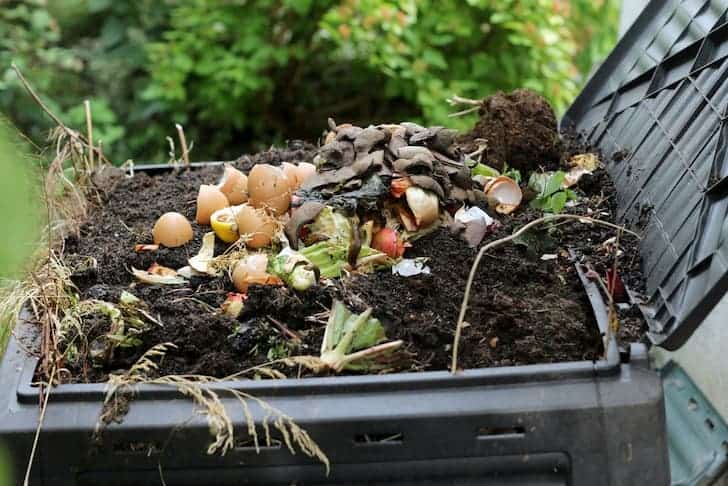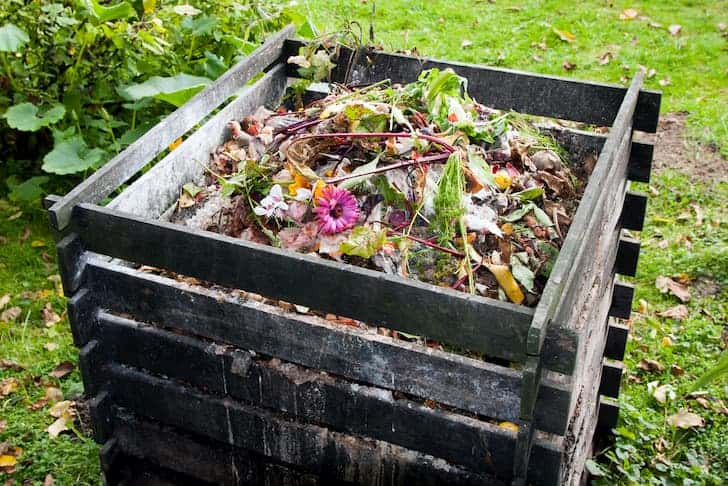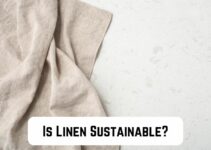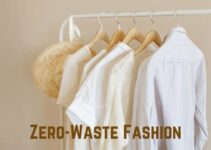Whenever folks begin new ventures, new adventures even, the first steps always appear to be the most difficult. But when the journey has begun in all earnest, it’s amazing how much can be achieved in such a short space of time. Earth’s journey, on the other hand, has lasted for thousands of years. But in its present state, in just a short space of time, mankind has managed to turn it into, quite literally, a rubbish heap. But, against the tide of over-pollution, global warming and climate change, there are acres of hope.
Men and women across the globe, in their own small ways, are each doing a little bit towards drastically reducing their carbon footprints. The big question is always asked; is this enough. But the positive affirmation still remains that every little bit helps.
Today, whether it is done in the home’s backyard or on much larger industrial scales, two key functions are being stepped up to clean up the environment. But, unfortunately, well-meaning intentions without fully understanding the consequences of what is being done, often lead to more damage.
Composting in itself is a great way to put nutrients back in the soil, even if you don’t have a garden. Composting is a process via which decomposed organic materials are converted into a rich soil known as compost that helps plants grow.
According to Wikipedia,
“Compost (/ˈkɒmpɒst/ or /ˈkɒmpoʊst/) is organic matter that has been decomposed in a process called composting. This process recycles various organic materials otherwise regarded as waste products and produces a soil conditioner (the compost).”
The rest of this article deals with those functions, the matter of recycling and manufacturing compost. The damage that needs to be reversed relates to the lack of education on how to manage these tasks properly. It also entails a more responsible, thoughtful and proactive response towards cleaning up the environment and growing things organically.
This journey here lists over thirty items, namely what should not be going into a compost bin and what should never be recycled. The first half of this article deals with a list of items that should not be added to the mix during compost manufacturing. The article ends with the list of items that should not be recycled.
31+ Things You Should Never Put in Your Compost Heap
Here are 31+ things that you should not throw in the compost heap.
1. Bread
In this category, cakes and pasta have been included. All forms of residue left behind are a magnetized attraction for unwanted pests.
2. Cooking Oil
It is perceived as food by pests. Also, its chemical content can upset the balance of nutrients in the compost.
3. Dairy Products
Like bread or grain products, these products are also a favored food source for pests and can also attract wildlife or flies.
4. Fat Based Condiments and Foods
Things like oily salad dressing and peanut butter will not break down like butter, cooking oil, animal fat, and grease. Instead, they’ll shift the moisture balance of your pile and attract pests.
5. Diseased Plants
These carry fungus and harmful bacteria, which can be transferred to the organic nutrients of the compost heap.
6. Plants That Challenge and Invade
Otherwise known as weeds, these plants won’t decompose but grow instead.
7. Feces
The bacterial content from both human and carnivorous animals, mainly to do with consumed meat, is hazardous, which might contain pathogens.
8. Meat Scraps
Apart from the bacterial hazard, contents such as blood, bones and fleshy residues are also attractive to pests.
9. Fish and Eggs
Fish and eggs cause it to stink, and anything that stinks, of course, will attract unwanted pests, like raccoons, rodents and maggots.
10. Heavily Coated Paper
These are broadly categorized to include things such as greeting cards, magazines, and writing pads. Apart from its chemical content, its high foil content is non-compostable.
11. Glossy Paper
Any paper that has a glossy plastic finish is toxic to the compost pile. This includes even some magazines, product catalogues, wrapping paper and photographs.
12. Coated or Printed Paper
One simple trick to use as a sticky reminder is to simply never print. There is no longer a need to do this, and its impact on the environment remains negative.
13. Bioplastic Packaging and Cellophane
Do not rely on any “biodegradable packaging” unless you are sure that it’s certified to be home compostable. Many of these are only compostable in industrial composting facilities.
14. Rice
In two parts, rice is unsuitable for the compost heap. Raw rice is attractive to pests, while cooked rice is fertile ground for bacteria, potentially harmful to the compost’s nutrients.
15. Sawdust
It is not feasible to identify whether the wood has been treated with chemicals and other harmful ingredients or not. It is better not to toss sawdust into the compost heap at all.
16. Used Personal Items
All used personal items such as tampons and diapers are soiled with human fluids and are health hazards.
17. Synthetic soaps
Soaps shouldn’t go in your compost, other than those certified as biodegradable. If you have a tiny sliver of standard bar soap leftover, collect more of it, and once you have a few, melt them together to make a new bar.
18. Tea and Coffee bags
Tea and coffee should only be added in the compost pile if they are bagless. Some bags contain synthetic fibers that do not break down in a compost pile.
19. Citrus Peels, Onions and Garlic Scraps
They should be avoided as they might scare of useful bacteria and insects or kill worms and other organisms.
20. Tomato Fruits
Tomato plants, trimmings and even fruits are fine. But they will lead to baby tomato sprouts anywhere you use the compost. It’s better to use your overripe tomatoes to make salsa!
21. Coal Ash
It may contain so much sulfur that it may make soil excessively acidic.
22. Large Branches
They take a long time to break down. It is better to cut them down into smaller pieces. The smaller the pieces, the faster they will break down.
23. Lawn Trimmings Recently Treated With Chemicals
Lots of grass has some degree of chemical treatment. The composting process can break those materials, but only in small amounts. Since lawns are typically treated in high concentrations with pesticides or herbicides, the trimmings from a freshly treated lawn shouldn’t go into compost before few weeks; that is, the concentration has had time to weaken.
24. Synthetic Fertilizer
Synthetic fertilizer may upset the balance of nutrients in the soil and may increase the saltiness in the soil.
25. Leather Goods
Your worn-out belts, wallets, purses gloves etc. are organic, but they take years to properly decompose, especially since most leather accessories are treated with life-extending materials.
26. Dead Animals
They should better be buried underground.
27. Inorganic Materials, such as Polyester, Plastic, Acrylic, Rubber etc.
Plastic products take much longer to compost. So, it is better to keep them off your compost bins.
28. Manure From Sick Animals
Manure is a great product to be used in a compost pile. But this should be used only if you are sure that it hasn’t come from sick animals or animals taking antibiotics.
29. Walnuts
They contain juglone, a natural aromatic compound considered toxic to plant life.
30. Pretty Much Anything That is Poisonous
This should be a case of stating the obvious. Proactive measures entail checking product labels.
31. Cigarette Butts
Some butts are made of plastic, and cigarettes are filled with chemicals. Plain tobacco is compostable, but not all that’s in cigarettes.
32. Not Even Torn or Shredded Bits of Clothing
Even the tiniest bits of fiber can contain harmful substances and invariably do contain chemicals. Also, there is the question of dye from the clothing material’s colorants.
33. Stickers on Fruits and Vegetables
Make sure these bits of plastic are not to be missed to be peeled off before tossing the fruit in a pile. They’re a huge source of composting contamination all over the world and can’t even break down in industrial composting facilities. You can get rid of these annoying stickers by buying directly from the farmers.
By now, you may have come to realize that even the best intentions have their consequences.
In the case of creating your own compost to feed your own organic ecosystem at home, this is pertinent. With just a portion of knowledge on some of the basics, many people who don’t give much thought to how they do things at home, have yet another opportunity to pull things right.
As a reader, you can help them by informing them of what needs to be done and, as is the case here, what should never enter the compost heap.

Items That You Should Never Recycle
1. Aerosol cans –Spray cans contain far too many chemicals and are regarded as hazardous waste by authorities.
2. Boxes in general –Most boxes, amazingly at this stage, are still not adequately prepared for recycling purposes.
3. Brightly dyed paper –Apart from the potential to stain other surfaces, the colorants are still filled with toxins.
4. Batteries –They can be recycled but need to be handed into specialized depots that process these materials.
5. Ceramics –In general, none of these should be tossed out, and more uses should be found for them around the home.
6. Dangerous waste –All household chemicals and motor oil are included in this category. Find out where recyclable oil is handled.
7. Medical waste –This needs to be handled carefully. Ideally, find NGO-oriented services that will dispose of waste responsibly.
8. Diapers –It already contains human feces that are hazardous to the environment. The switch must be made towards using old-fashioned, washable diapers.
9. Fruit juice containers –As with boxes in general, far too many juice containers remain unsuitable for recycling bins.
10. Glass –Tossing these into general bins is dangerous because glass breaks and sharp edges will injure people.
11. Napkins –Interestingly, these have been recommended as ideal for composting instead of recycling.
12. Wet paper –Because of water, paper fibers are damaged and considered to be a contagious risk.
13. Plastic bags –It is recommended that these be washed and re-used in the home rather than tossing them away.
14. Plastic, plastic and still more plastic –Prevention is better than cure. It’s far better not to buy and use plastic at all.
15. Soft or hard plastic take-out containers –When it comes to lifestyle paradigms, this is another hard sell which entails radically adjusting eating habits to promote good health as well as using far less unwarranted plastics.
16. Pizza boxes –In the same vein as boxes in general, most of these haven’t been prepared for proper recycling. Also, it’s too greasy to be cleaned.
The same goes for recycling. Most people won’t be thinking of a compost heap right now, mainly because of their living circumstances. Urban lifestyles don’t always allow for enough space to create your own organic garden.
But you would be amazed at what you can do with just a small space. If you’re living on an apartment complex, you could encourage the building’s owners to start a garden as well as a recycling depot on the building’s roof. And before he tells you that this is nearly impossible, a little bit of research will show both you and him that it’s being done in different parts of the country and the world.
Finally, the next time you go shopping, think carefully about what you buy so that you can avoid accumulating most of the non-recyclable waste items mentioned in the above list.
Knowledge can be empowering. And knowing what to do and when to do it is even more so. Doing the right thing makes a world of difference.






